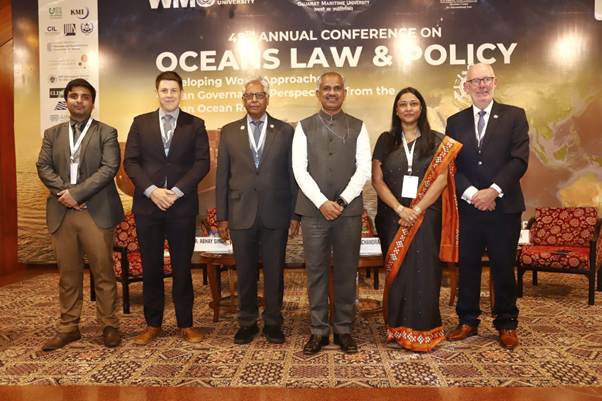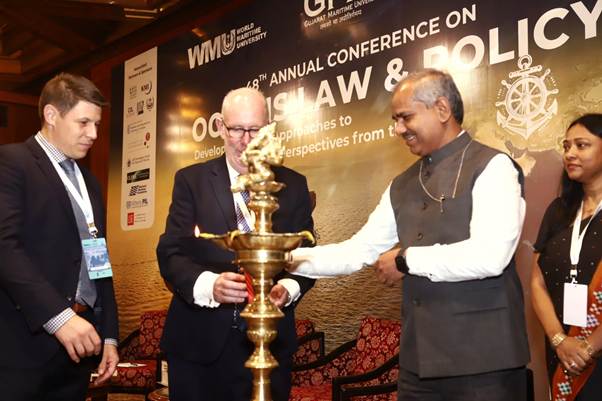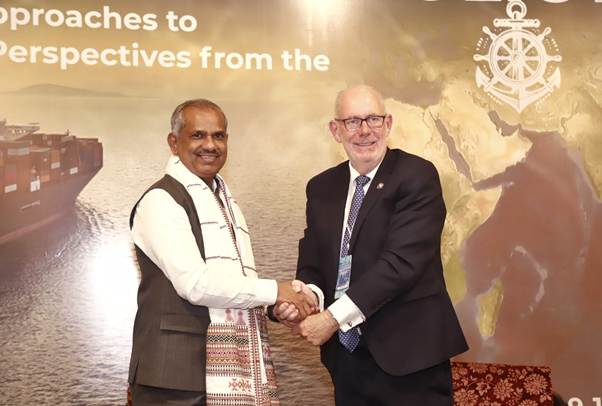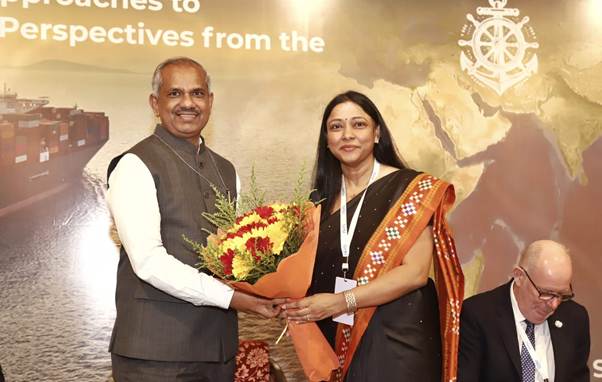Ministry of Earth Sciences
Dr. M. Ravichandran underscored Indian Ocean’s strategic importance, opportunities, and challenges at the 48th Annual Conference on Oceans Law & Policy (COLP48)
At COLP48 in New Delhi, Secretary of Earth Sciences emphasized the Indian Ocean’s strategic significance for global governance
For the First Time in Nearly 50 Years, India Hosted COLP48, Strengthening Its Role in Ocean Governance
Posted On:
10 SEP 2025 5:56PM by PIB Delhi
Dr. M. Ravichandran, Secretary of the Ministry of Earth Sciences, delivered a keynote address today at the 48th Annual Conference on Oceans Law & Policy (COLP48). Held under the theme “Developing World Approaches to Ocean Governance: Perspectives from the Indian Ocean Rim”, this gathering assembled global stakeholders to explore pathways for sustainable and inclusive marine governance rooted in the developmental priorities of frontier nations.
This is the first time in the nearly five-decade history of COLP that the conference is being hosted in the Indian subcontinent, marking a milestone for India’s role in shaping global ocean governance.
Addressing distinguished delegates, scholars, policymakers, and practitioners from across the world, Dr. Ravichandran noted that the Indian Ocean holds unparalleled significance for the planet. He stated that the ocean regulates climate, supports biodiversity, sustains livelihoods, and serves as a hub for global trade and security. However, he cautioned that the region faces mounting threats due to climate change, sea-level rise, acidification, declining productivity, and intensifying cyclones.
The Secretary outlined the five priority areas for ocean governance from a developing world perspective:
- Ensuring livelihood and food security through sustainable fisheries and mariculture.
- Deepening regional cooperation rooted in South-South solidarity among Indian Ocean Rim nations.
- Integrating traditional knowledge and participatory governance with modern science.
- Promoting climate resilience and ecosystem-based approaches to safeguard biodiversity.
- Mobilising innovative finance and building capacity for ocean research, technology, and governance.
He further stressed that achieving these goals requires robust laws, policies, and collective responsibility to shape a sustainable and inclusive blue economy.
Dr. Ravichandran emphasised the need to strengthen marine spatial planning, hazard mitigation frameworks, and indigenous technology development backed by innovative finance and technology-driven solutions to harness living and non-living resources such as renewable ocean energy, critical minerals, and eco-tourism in an equitable and sustainable manner.
Dr. Ravichandran said that despite covering 70% of the Earth’s surface, only 5% of the oceans have been fully explored, underscoring the urgency of enhanced research, observation networks, and international cooperation. He also called for greater engagement of Indian Ocean states in global governance forums under UNCLOS, the International Seabed Authority, and the BBNJ Agreement.
The Secretary highlighted the uniqueness of the Indian Ocean, noting that it is the only ocean in the world where currents and winds reverse direction every six months and lacks a northern outlet, causing heat accumulation and accelerated warming. He warned that the number of marine heatwave days in the region could rise from 20 days annually at present to 220 days per year by the end of the century, threatening coral reefs, fisheries, and coastal livelihoods.
He underlined that the Indian Ocean is India’s future in terms of food, water, energy, climate, and security, and therefore, policies must be evidence-based, collaborative, and forward-looking. He added: “A clean, healthy, resilient, and productive Indian Ocean is not just a regional priority but a global necessity. Collaboration is the key to ensure that the ocean continues to sustain generations to come.”
The conference is organised by the Stockton Center for International Law, U.S. Naval War College and the Gujarat Maritime University, with support from the Ministry of Earth Sciences, Government of India, and participation from eminent global institutions including the World Maritime University, Korea Maritime Institute, Japan Institute of International Affairs, National Maritime Foundation, University of Copenhagen, and IMO International Maritime Law Institute among others.




*****
NKR/PSM/SK
(Release ID: 2165373)
Visitor Counter : 847